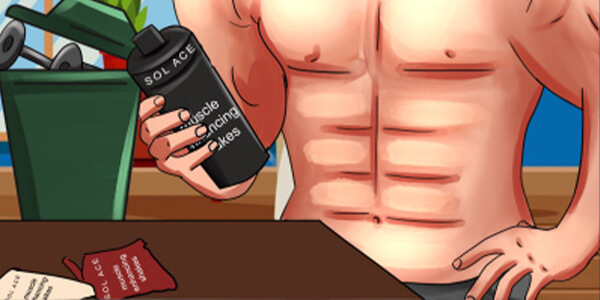
Getting fitness and health advice from different sources can be quite confusing. Scrolling through our social media feeds, we see images of influencers and celebrities flaunting their perfect bodies while promoting quick-fix diets, miracle products, and extreme workout regimens.
Although these diet fads may be tempting given their fitness promises, it’s important to draw the line between what’s healthy and what’s not. If something is too good to be true, then it probably is.
Unmasking the Distorted Reality of Social Media
Social media doesn’t really show us the real deal. It’s so easy to fake the things you can post online. Seeing these unrealistic body standards all the time can really mess with someone’s self-esteem, especially for the young ones.
Unfortunately, this vulnerability is often exploited by people who endorse miracle products, making them seem legitimate and tempting even if they’re the exact opposite. Most of them are really just doing it for the gram and grand, so take everything you see online with a grain of salt.
Ozempic: Weight loss drug?
The secret to shedding a few pounds in just a couple of weeks? Celebrities out there are promoting a medication called Ozempic that was originally meant for treating type 2 diabetes. Does it work? Yes. Is it bad? Also yes.
The problem is that these famous folks often don’t even know its side effects and only care about losing weight in an unhealthy way. This leads people to misuse it as a fix for losing weight without realising the dangers involved. See how irresponsible people can be because of diet fads?
Protein Shakes for Shaping Muscles?
Protein shakes, which were originally intended for athletes, have now become popular in the online fitness community. They are now being advertised as solutions for achieving a muscular and toned body.
However, these shakes often contain a combination of nutrients and questionable ingredients that aren’t all good. The obsession to get the “perfect body” doesn’t end because of these diet fads that make people think that there are shortcuts to being in shape. News flash: there are no shortcuts.
Building a Sustainable Path to Health
Here are a few steps we can follow to encourage healthy habits and beat the diet fads:
-
Develop critical thinking skills:
Don’t believe everything you see online. Conduct thorough research before trying out any new products or diets. Make sure the substances in the products you’re interested in are legal and FDA-approved. -
Seek guidance from professionals:
To get legit advice on nutrition and exercise, it’s best to consult dietitians and healthcare experts who possess the necessary expertise and not some influencer on TikTok with no valid credentials. -
Embrace a balanced approach:
Don’t fall for quick fixes or extreme routines that promise unrealistic outcomes. Focus on adopting a sustainable lifestyle, which includes cultivating eating habits, engaging in physical activity, and ensuring adequate sleep. -
Prioritise mental health:
Issues concerning body image and eating disorders often have psychological roots. If you find yourself struggling with your relationship with food and your body, consider seeking assistance from therapists or counsellors who specialise in this area. -
Unsubscribe from harmful content:
Unfollow accounts that promote body image ideals and unrealistic diet trends. Instead, curate your feed with informative content that celebrates body diversity while promoting healthy habits. You’ll feel good about your body once you surround yourself with things that are good and healthy for your body, mind, and soul.
Disclaimer
“Views expressed are the author’s own and are not intended for medical use. We lawfully exclude all liability. Terms and conditions apply. All rights reserved.”
